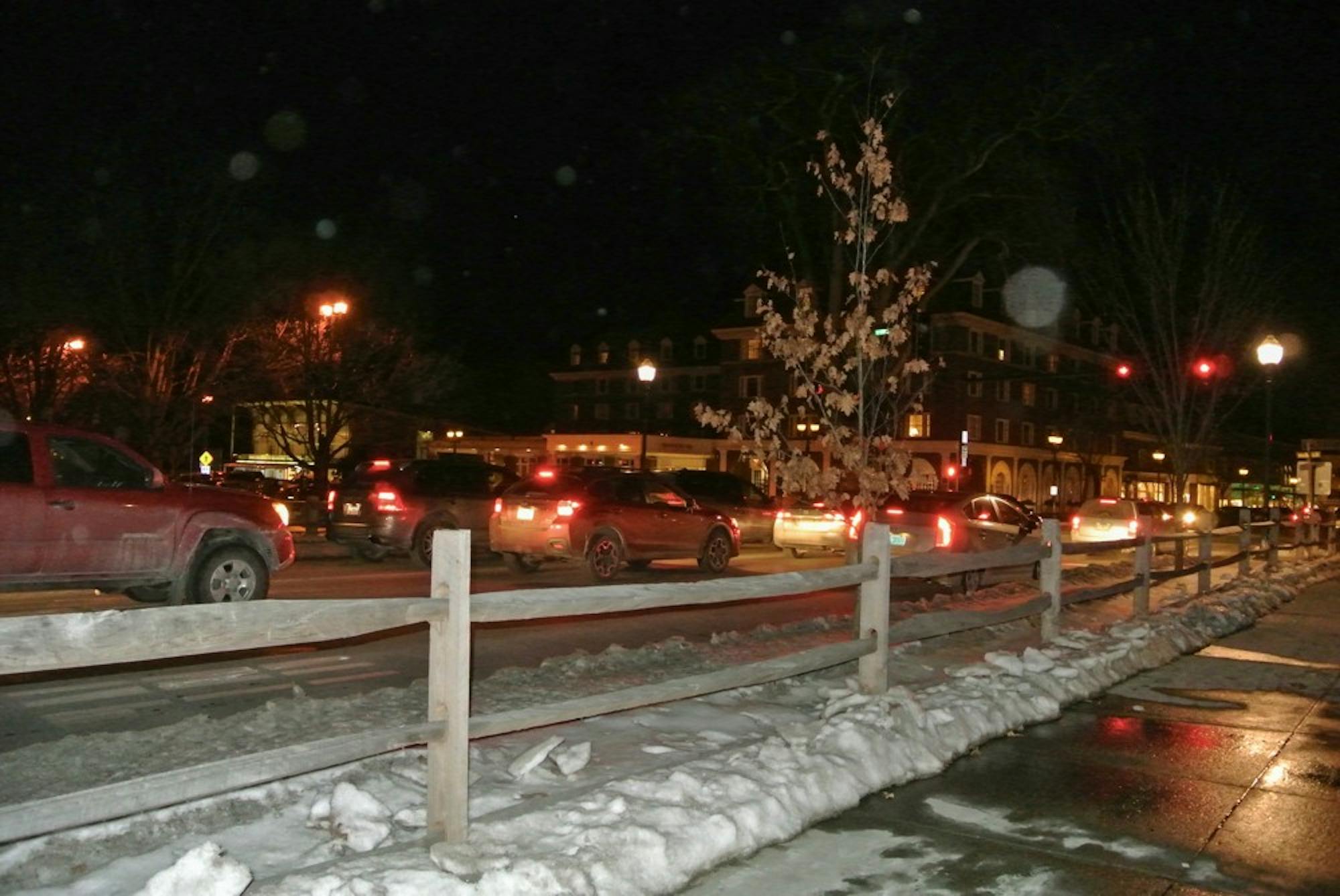The fence that was erected in front of the Collis Center over the 2015 winter interim has curbed jaywalking in the area, but many pedestrian safety issues still remain on campus, said chairman of the Hanover Bike and Pedestrian Committee Bill Young.
Young surveyed the road between Collis and the Green on May 15, 2015 from 10 a.m. to 12 p.m. to gather Hanover bicycle and pedestrian data and counted 107 jaywalkers, although the observations were not done according to national highway standards. On Oct. 7, 2016, Young performed another survey and counted zero jaywalkers. He attributed the change to the fence.
“[The fence] has been extremely successful,” Hanover town manager Julia Griffin said. “It is very rare to see anyone jaywalking there, and we heard all exclusively positives from drivers who appreciated not having to worry about pedestrians darting between cars in that section of North Main Street.”
The town of Hanover also took other safety measures last year to improve pedestrian safety in the intersection of Main Street and Wheelock Street, Young said.
The town put up a “do not turn on red” sign for drivers at the corner of Collis, because many pedestrians would cross to other corners of the intersection during red lights. According to Young, the corner of Collis has become a much safer corner after the sign was posted.
In addition to the sign, the town also changed the traffic signals at the corner of Collis and the Green on Wheelock Street. Pedestrians crossing between the two locations receive the “walk” signal upon pressing the crosswalk button, whereas before they had to wait for a full traffic cycle. Despite the new traffic signal, Young said that there continues to be a high number of jaywalkers crossing between Collis and the Green during red lights.
Dartmouth’s campus ranks among the worst locations for pedestrian safety in Hanover, Griffin said.
“There’s no other area of town that we have this level of pedestrians posing challenges for drivers,” Griffin said. “Sometimes [students] don’t pay attention to vehicles, and they are often walking so slowly that drivers are about to tear out their hair.”
Griffin identified the east side of the Green near the Hood Museum for the Arts, the road between the Alumni gymnasium and East Wheelock and North Park Street as a few problematic areas in regards to pedestrians.
Hanover police lieutenant Scott Rathburn said that the use of electronic devices is an issue, especially among student pedestrians.
“In terms of people being distracted by their electronic devices, it is more likely to be a student,” Rathburn said. “It doesn’t mean it can’t be somebody else, but [the] population of students in the area is pretty high, so we tend to see a lot more kids looking at their phones there.”
In the past, Young frequently saw distracted walking incidents.
“One student in the middle of the intersection [of Main Street and Wheelock Street] was jaywalking against the light doing something on the cellphone as the [Dartmouth Coach] was turning the corner,” Young said. “Dartmouth Coach drivers are very well aware of pedestrian issues in Hanover, and they say students take serious risks.”
Young also said that the school needs to further promote pedestrian visibility. He encouraged students to wear bright clothing at night so that drivers can spot them more easily. Students could also wear reflective gears such as wristbands and knuckle lights provided by the Student Wellness Center and Hanover Improvement Society, he said.
Hanover director of public works Peter Kulbacki said that the town will continue to develop different technologies to improve pedestrian safety at Dartmouth and at other parts of Hanover.
“We have done crosswalks that light up when people are crossing and some other technologies that flash when someone is approaching,” Kulbacki said.




